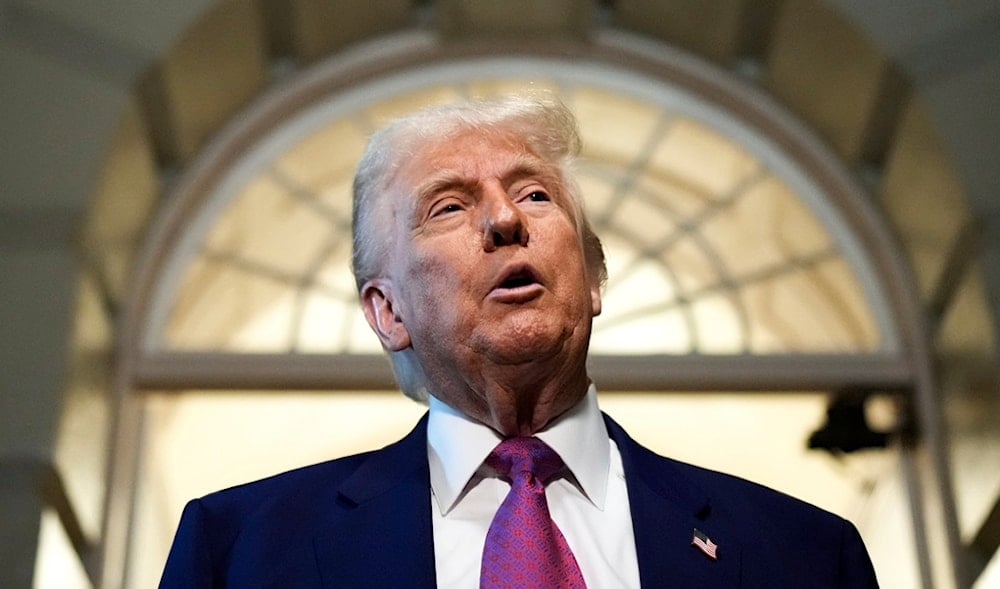IMF urges US to tackle fiscal deficit as Trump pushes tax cuts
IMF’s Gita Gopinath urges the US to reduce its growing fiscal deficit amid Trump’s tax cut push, as Moody’s downgrade highlights rising debt and policy risks.
-

President Donald Trump speaks to reporters after departing a House Republican conference meeting, Tuesday, May 20, 2025, at the US Capitol in Washington. (AP)
A senior official at the International Monetary Fund has urged the United States to reduce its growing fiscal deficit, warning of long-term risks associated with its rising debt burden. Gita Gopinath, the IMF’s first deputy managing director, told the Financial Times that "US fiscal deficits are too large and they need to be brought down."
Her warning follows growing concern over President Donald Trump’s push to extend his 2017 tax cuts, a move critics say could significantly widen the federal deficit.
Gopinath noted that the US debt-to-GDP ratio continues to climb, reaching 98% in fiscal year 2024, up from 73% a decade earlier saying "It should be that we have fiscal policy in the US that is consistent with bringing debt to GDP down over time," she said.
Trump’s 2017 tax cuts fuel budget concerns
Trump’s proposed extension of the tax cuts, branded by him as "the big, beautiful bill," is causing unease among financial markets and international observers. Although the administration argues the cuts will pay for themselves through higher growth, major institutions like Moody’s remain unconvinced.
According to Moody’s, the tax legislation could push US deficits from 6.4% of GDP last year to nearly 9% by 2035. The credit rating agency recently stripped the US of its final triple-A rating, citing unsustainable fiscal policies and a lack of credible deficit reduction plans.
Treasury Secretary Scott Bessent, however, defended the administration’s position, attributing the deficit buildup to the previous administration. He maintained that Trump’s government is committed to cutting the deficit to 3% of GDP by the end of his term.
Moody’s downgrades US credit over fiscal risks
The downgrade from Moody’s has amplified calls for stronger fiscal discipline, as investors grow wary of the US government’s borrowing needs. Rising deficits could require the government to issue more bonds, even as both foreign and domestic investors show signs of skepticism.
The 30-year Treasury yield rose to 5.04%, the highest level since 2023, indicating growing pressure in the bond market.
That said, the IMF has also adjusted its projections, cutting its US growth forecast to 1.8% in 2025, partly due to the expected impact of Trump’s economic policies, including tariffs.
Tariff pause with China brings limited relief
Despite the fiscal concerns, Gopinath welcomed the recent pause in tariff increases between the US and China, where both countries agreed to roll back certain levies for 90 days. "The tariff pause with China is a positive development," she said, while cautioning that the US' effective tariff rate remains high.
She emphasized that although the temporary rollback may help in the short term, uncertainty still clouds trade policy, saying, "It is going to take a little while before the effects of all these developments work through the data."
The IMF noted that its latest deficit projections did not account for the pending tax cut legislation, further intensifying concerns about US fiscal sustainability in the years ahead.

 3 Min Read
3 Min Read








